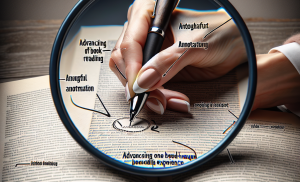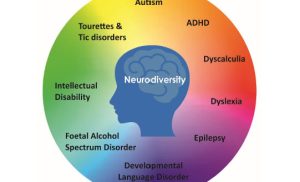Mental Health First Aid: A Guide to Supporting Others in Times of Crisis

It’s not uncommon for us to encounter someone in our lives who is struggling with their mental well-being. Just as we’re prepared to offer physical first aid in emergencies, it’s crucial to understand how to provide mental health first aid when someone is facing a crisis. In this comprehensive guide, we will delve into the importance of mental health first aid, the key principles behind it, and practical steps you can take to support others during difficult times.
The Significance of Mental Health First Aid
Mental health first aid is a vital skill that can make a significant difference in someone’s life. Just as with physical ailments, early intervention in mental health crises can prevent the situation from escalating and provide the affected person with much-needed support. Here are some reasons why mental health first aid is so important:
- Reduces Stigma: Offering assistance to someone experiencing a mental health crisis helps reduce the stigma associated with mental illness. It conveys the message that mental health is just as important as physical health.
- Saves Lives: In severe cases, intervening appropriately can be a matter of life and death. Recognizing signs of suicidal ideation or self-harm and taking action can be life-saving.
- Promotes Recovery: Early intervention can significantly contribute to a person’s recovery process. Providing support and resources can empower individuals to seek professional help and make positive changes.
- Strengthens Communities: Mental health first aid fosters a sense of community and compassion. It builds connections and trust among individuals, making communities more resilient.
Key Principles of Mental Health First Aid
Before delving into the practical steps of mental health first aid, it’s essential to understand the key principles that underpin this valuable skill:
- Recognize the Signs: The first step in providing mental health first aid is to recognize the signs and symptoms of distress. This includes changes in behavior, mood swings, withdrawal from social activities, or expressions of hopelessness.
- Listen Actively: When someone confides in you about their mental health struggles, active listening is crucial. Create a safe and non-judgmental space for them to share their feelings and experiences.
- Offer Empathy: Empathy involves understanding and sharing the feelings of another person. Express your concern and compassion genuinely, letting them know you care.
- Assess for Safety: In some cases, the person may be at risk of self-harm or suicide. Assess their safety and seek immediate help if necessary. Never leave someone alone if you believe they are in danger.
- Encourage Professional Help: Mental health first aid is not a substitute for professional treatment. Encourage the person to seek help from a mental health professional or a counselor.
Practical Steps in Mental Health First Aid
Now that we’ve covered the fundamental principles, let’s explore the practical steps you can take when providing mental health first aid:
- Initiate the Conversation: Approach the person in a private and comfortable setting. Express your concern by saying something like, “I’ve noticed you’ve been acting differently lately. Is everything okay?”
- Listen Actively: As they share their thoughts and feelings, listen without judgment. Avoid interrupting or offering solutions immediately. Instead, focus on understanding their perspective.
- Validate Their Feelings: Acknowledge their emotions and let them know it’s okay to feel the way they do. Phrases like “I can see how that would be really tough” or “It’s normal to feel that way” can be reassuring.
- Ask Open-Ended Questions: Encourage them to talk by asking open-ended questions like, “Can you tell me more about what you’re experiencing?” This allows them to express themselves fully.
- Offer Support: Let them know you’re there for them and willing to help. Ask if there’s anything specific they need, such as a listening ear, assistance in finding professional help, or connecting with support groups.
- Assess for Safety: If you suspect they might be in immediate danger, ask directly about their thoughts on self-harm or suicide. Take any mention of self-harm or suicide seriously and seek professional help immediately.
- Encourage Self-Care: Suggest self-care strategies like exercise, meditation, or engaging in hobbies they enjoy. Encourage them to prioritize their well-being.
- Respect Their Boundaries: It’s important to respect their boundaries. If they are not ready to talk or accept help, don’t push them. Let them know you’re available when they’re ready.
Mental health first aid is an essential skill that allows us to support others during times of crisis. By recognizing the signs, actively listening, and offering empathy, we can make a profound difference in someone’s life. Remember that mental health first aid is not a replacement for professional help, but it can be the first step towards recovery. By promoting understanding, compassion, and early intervention, we can create a more mentally healthy and supportive society for all.
Mental health matters, and help is available.
Mental Health Resources
If you or someone you know is struggling with mental health issues, it’s essential to reach out for help. There are numerous resources available, including hotlines, websites, and support organizations, that can provide the assistance and guidance you need. Here are some valuable mental health resources:
1. National Suicide Prevention Lifeline
- Phone: 1-800-273-TALK (1-800-273-8255)
- Website: www.suicidepreventionlifeline.org
- Description: The National Suicide Prevention Lifeline offers 24/7 support and connects you with trained counselors who can provide immediate help and local mental health services.
2. Crisis Text Line
- Text: Text “HOME” to 741741
- Website: www.crisistextline.org
- Description: Crisis Text Line provides confidential and 24/7 text-based support from trained crisis counselors, offering assistance and resources.
3. National Alliance on Mental Illness (NAMI)
- Phone: 1-800-950-NAMI (1-800-950-6264)
- Website: www.nami.org
- Description: NAMI is a leading advocacy and support organization for individuals and families affected by mental health conditions, offering support groups and resources.
4. MentalHealth.gov
- Website: www.mentalhealth.gov
- Description: This U.S. government website provides comprehensive information on mental health topics, treatment options, and finding help.
5. Psychology Today
- Website: www.psychologytoday.com
- Description: Psychology Today offers a directory of mental health professionals, therapists, and psychiatrists to help you find the right provider in your area.
6. Local Mental Health Services
- Description: Contact your local mental health department or community health center for information on available resources, crisis hotlines, and support services.
7. Online Support Communities
- Description: Join online support groups and communities, such as Reddit’s r/mentalhealth or r/depression, for connection and understanding. Ensure the groups you join are moderated for safety and support.
8. Emergency Services
- Description: In life-threatening situations, call 911 or visit the nearest emergency room. Mental health emergencies are treated seriously, and professionals are available to help.
Remember, seeking help for mental health issues is a courageous step, and there are people and organizations ready to provide support. You don’t have to face it alone—use these resources to get the assistance you need on your journey to mental well-being.

















